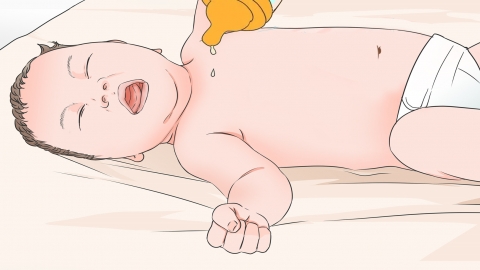What should I do if a newborn baby has diarrhea a few days after birth?
Diarrhea refers to loose or watery stools. Diarrhea in newborns a few days old may be caused by initial adaptation to breastfeeding, formula transition or intolerance, abdominal coldness, intestinal flora imbalance, or acute gastroenteritis. Management depends on the specific situation. Parents should promptly take the infant to the hospital for examination to determine the cause and appropriate treatment.

1. Initial adaptation to breastfeeding: When a baby begins breastfeeding, he or she may experience temporary diarrhea while the intestines adapt to the components of breast milk. Continue breastfeeding and ensure adequate sucking to promote intestinal maturation and balance of gut flora.
2. Formula transition or intolerance: Diarrhea may occur when a baby transitions from breast milk to formula, or if the baby is intolerant to certain formula components. Consider switching to a formula better suited to the infant's digestive system, such as a partially hydrolyzed protein formula or a lactose-free formula.
3. Abdominal coldness: Newborns have relatively weak temperature regulation abilities. If the abdomen becomes chilled, it may cause increased gastrointestinal motility and result in diarrhea. Ensure proper abdominal warmth for the infant, adjust clothing according to weather changes, and apply a warm towel or hot water bottle to the abdomen to help relieve symptoms.
4. Intestinal flora imbalance: During the early days after birth, an infant's intestinal flora may not yet be fully established. External factors may disrupt the balance of gut bacteria, leading to diarrhea, which may be accompanied by symptoms such as bloating, abdominal pain, alternating constipation and diarrhea. It is recommended to use medications such as Bifico (Bacillus subtilis and Bifidobacterium bifidum live capsules), Bifidobacterium capsules, or Bifidobacterium triple viable capsules under a doctor's guidance.
5. Acute gastroenteritis: Infants may develop acute gastroenteritis due to viral or bacterial infections, which can cause diarrhea accompanied by nausea, vomiting, abdominal pain, fever, and other symptoms. It is recommended to use medications such as Cefaclor granules, Bismuth potassium citrate tablets, or Compound Berberine tablets under a doctor's guidance to alleviate symptoms.
When managing infant diarrhea, parents should remain calm and closely monitor changes in the baby's symptoms.






